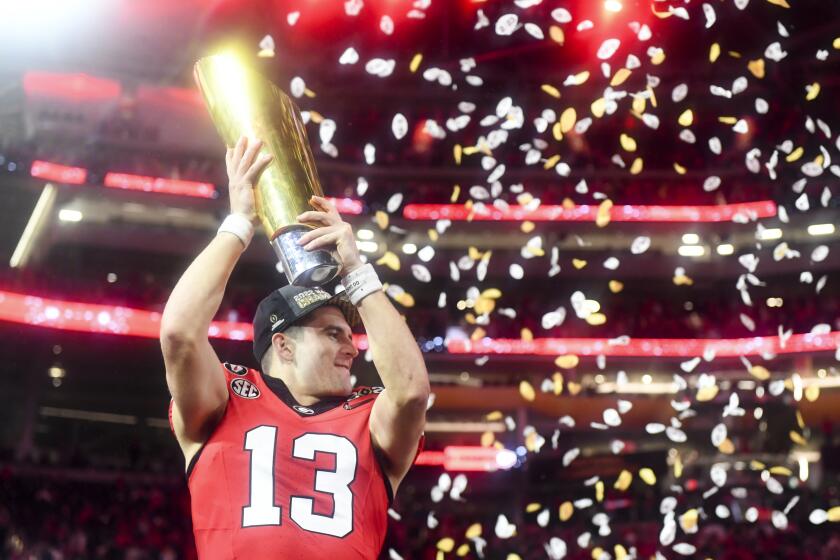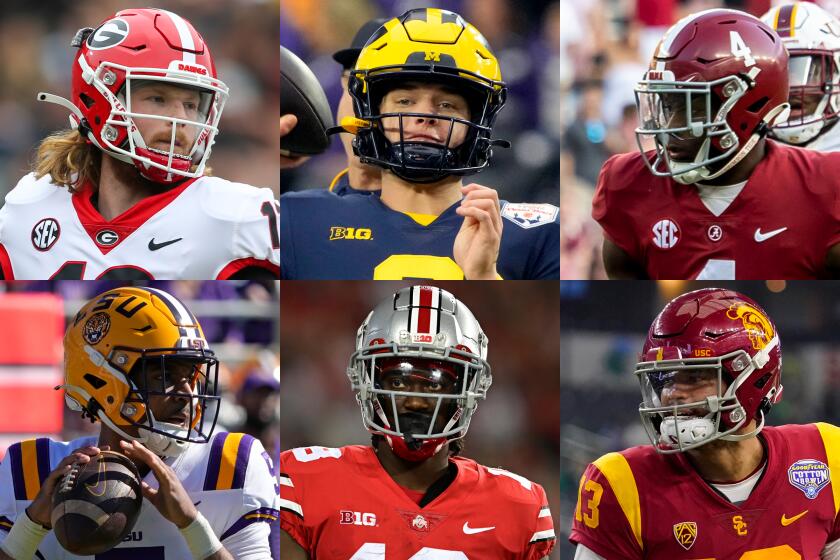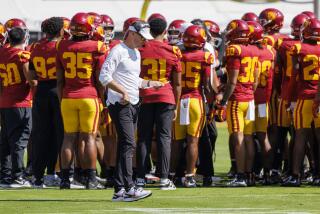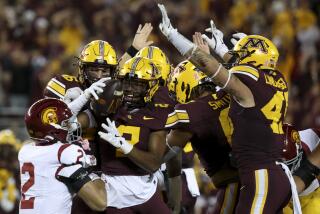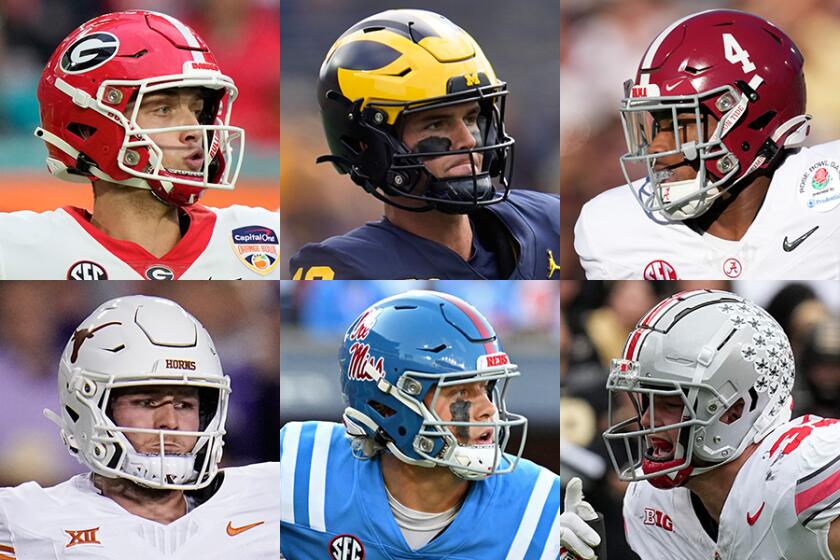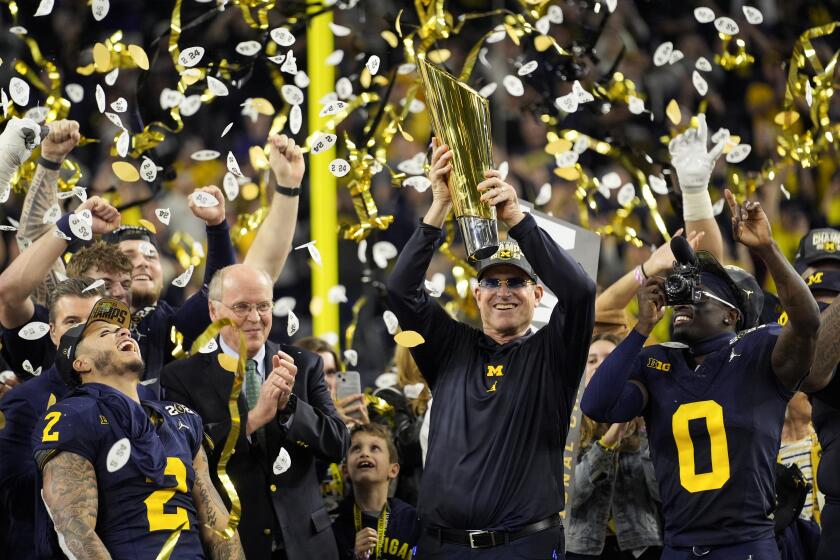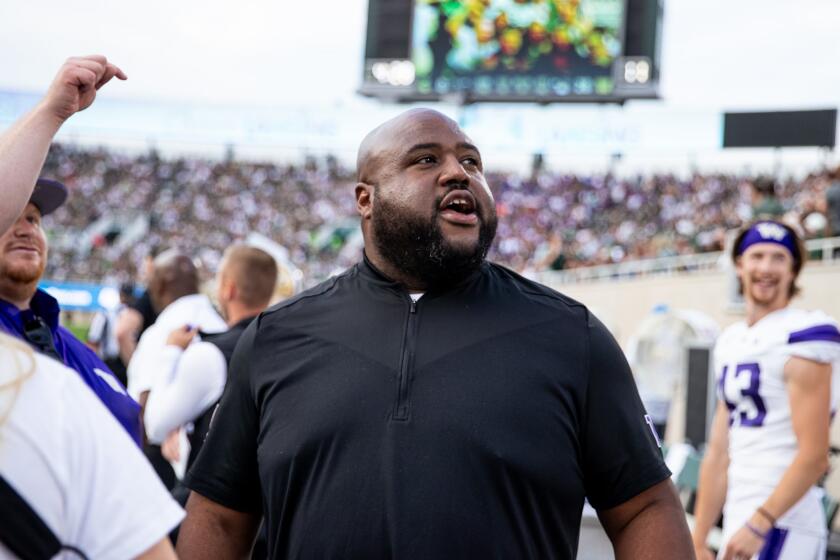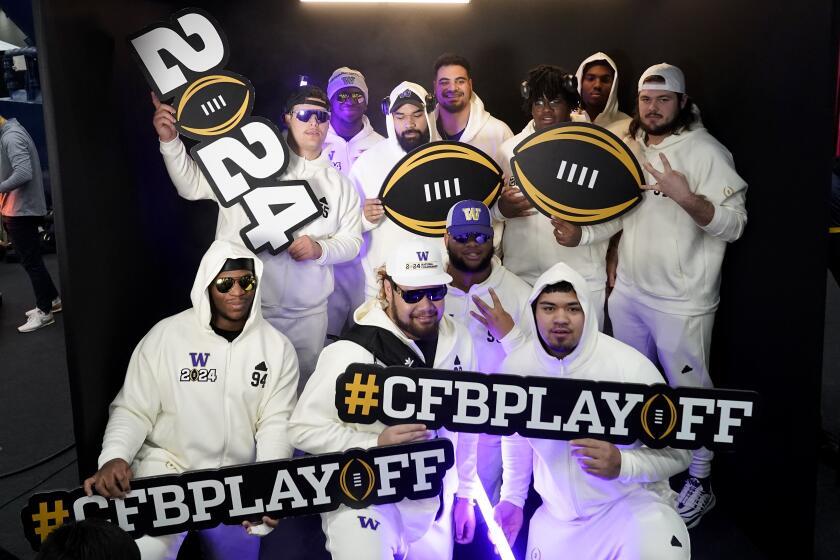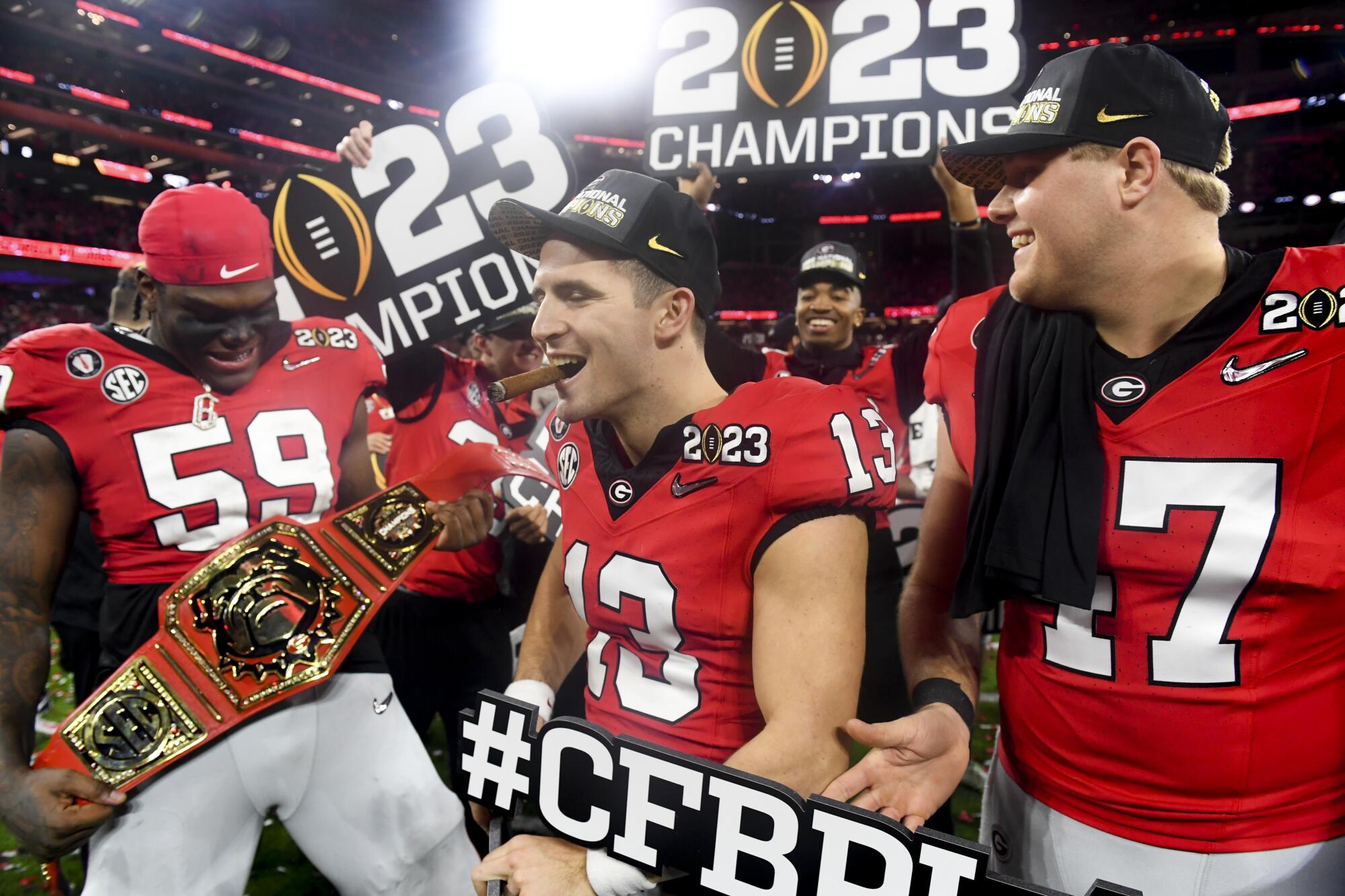
When one considers the inevitability of these Georgia Bulldogs, the easy thing to do is point to the recruiting rankings and assume all those blue-chippers tell the tale of the furious red storm that enveloped SoFi Stadium on Monday night.
But the truth is actually much scarier for the rest of the teams in college football that are burdened 365 days a year with a thirst for the throne, and here it is: The Bulldogs’ best players are former two-star and three-star athletes that have been developed into ruthless world-beaters.
A few moments from Georgia’s 65-7 humiliation of Texas Christian illustrate this perfectly.
Such as in the first quarter, when the Bulldogs got the ball back after TCU scored its lone touchdown to pull within 10-7, hinting at the possibility of a competitive football game unfolding in Inglewood. Now, by this point, everyone who pays any attention to college football knows that Georgia’s quarterback, Stetson Bennett IV, was once a walk-on. It’s an inspiring story, one that will rightfully redefine rags-to-riches in the sport’s annals. But let’s not forget about Ladd McConkey — Bennett sure didn’t.
Quarterback Stetson Bennett cemented his place in Georgia lore, leading the Bulldogs to a 65-7 win over TCU and their second straight CFP championship.
Georgia’s drive went like this: Bennett passes to McConkey for 11 yards. Kenny McIntosh runs for 11 yards. Bennett to McConkey for 11 yards. Bennett to McConkey for a 37-yard touchdown.
McConkey, who put down underdog TCU’s mini-uprising, is a native of Chatsworth, Ga., a town with a population of less than 5,000. Coming out of high school, he was ranked the 169th-best wide receiver in the country and the No. 121 player in the state of Georgia. But Kirby Smart found him and had the confidence to sign the young man.
On the defensive side, how about safety Javon Bullard, the speeding bullet who picked off two Max Duggan passes and recovered a Derius Davis fumble in the first half? Surely, a five-star recruit, right?
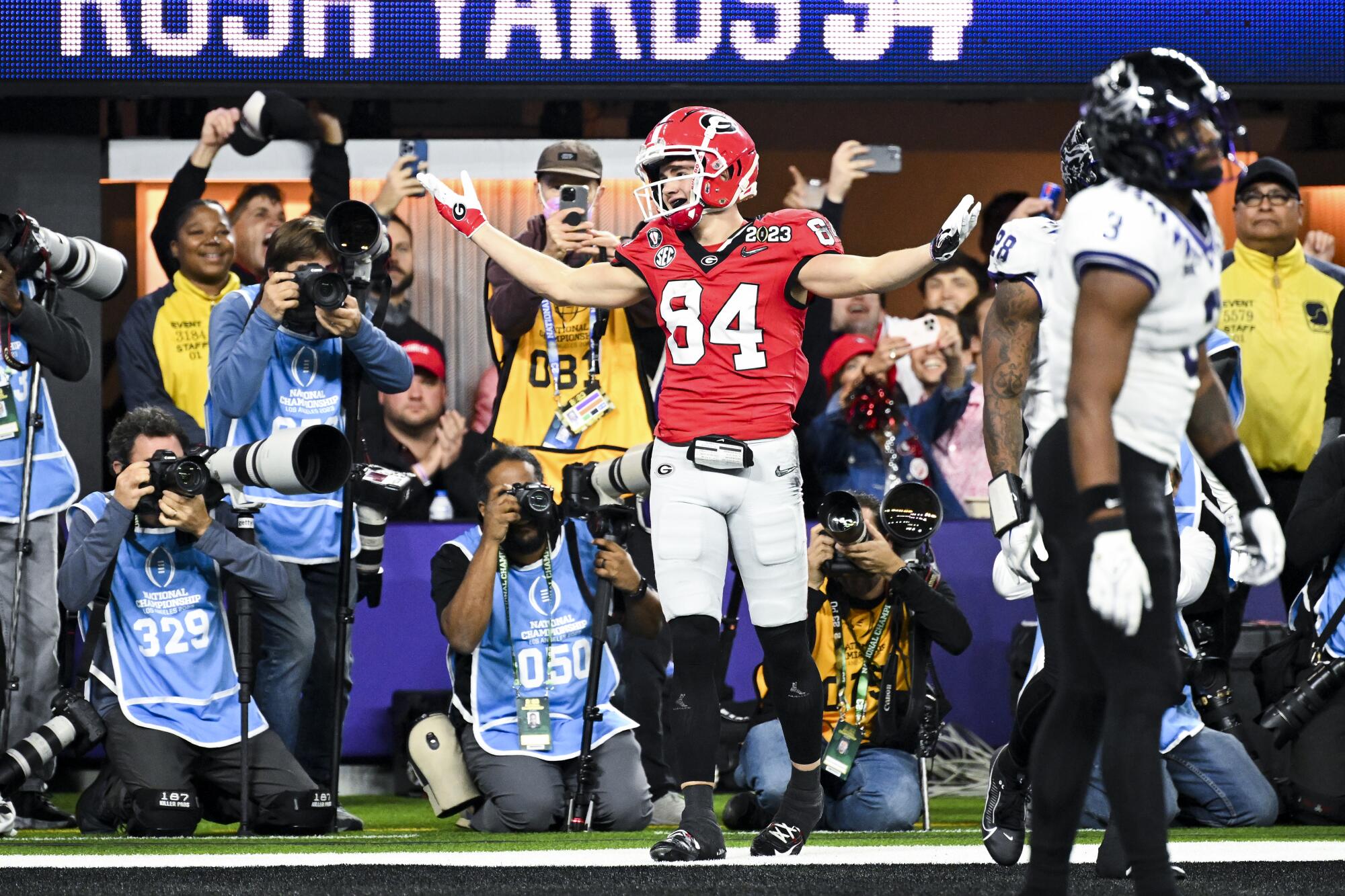
Nope. A three-star prospect out of Milledgeville, Ga., who wasn’t included among the top 600 players in his class.
For this reason — just as much as Georgia’s ability to annually fill its class with headliner recruits just from the Atlanta metro area alone — Smart’s budding Bulldogs dynasty is wonderfully sustainable, as dependable as each summer’s crop of Georgia peaches.
These guys are not going anywhere. Yes, some other Southeastern Conference power — Alabama, of course, comes to mind first — might knock them off their perch in a given season. And we can’t forget that Ohio State had the Bulldogs nearly beaten in the Peach Bowl. Georgia will lose again someday.
But for the USCs of the world, the power-hungry programs with the ambition and the tradition to match, that just means another team has achieved Georgia’s standard of greatness and is still standing in the way.
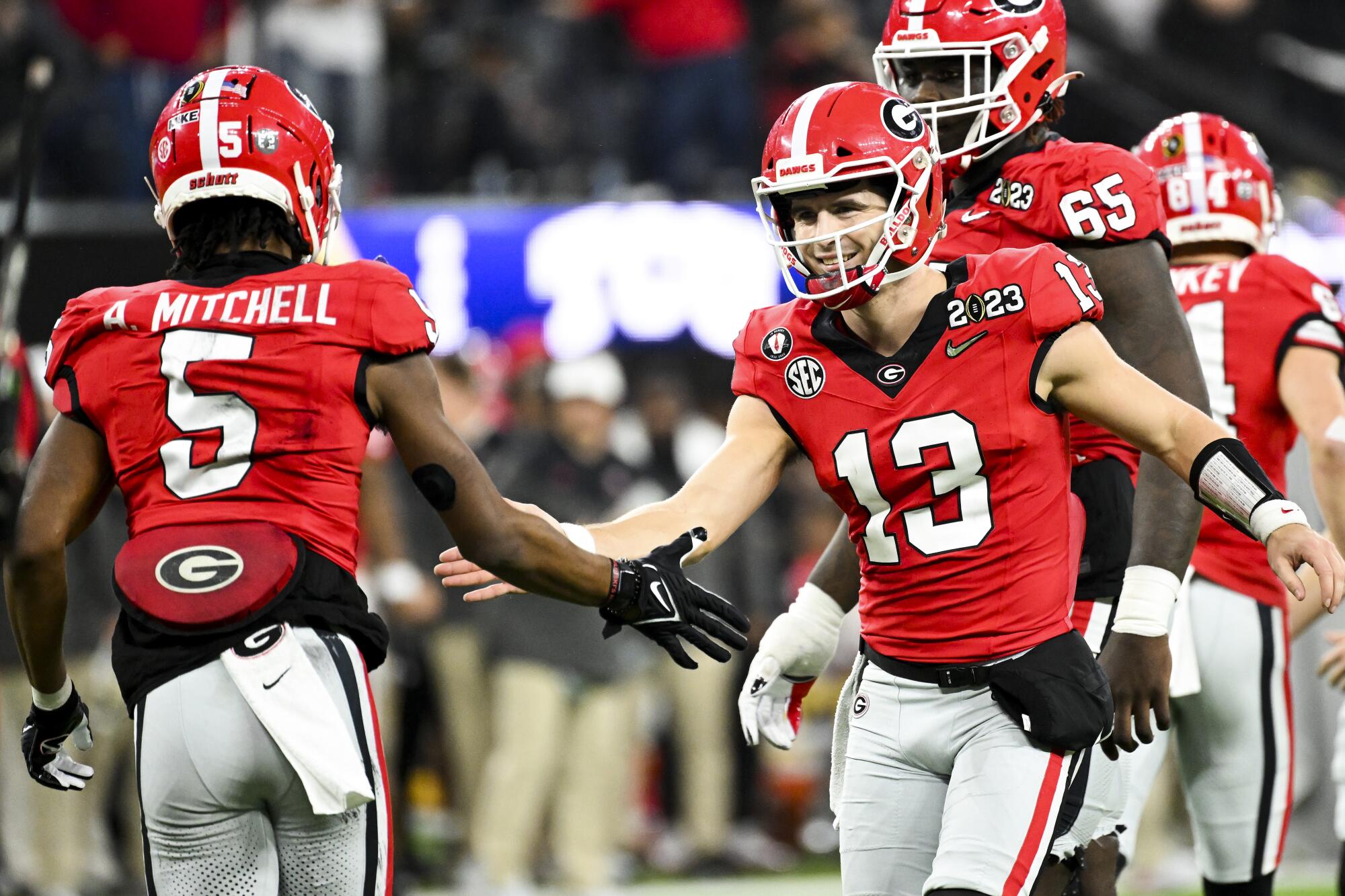
Winning back-to-back national championships is nearly impossible with a roster full of 18- to 22-year-olds. Smart somehow pulled this off without adding one player from the transfer portal last offseason, putting his faith in the culture he’d built and the belief that the players who had put in the investment would know how to make their work pay off.
A few minutes into the fourth quarter Monday night, Smart put in his backups, some of whom will be the guys expected to keep this runaway title train rolling for a third year in a row.
The only team in major college football history that can claim three straight national championships? The mighty Minnesota Golden Gophers of 1934-36.
Georgia looks to remain college football’s team to beat in 2023, but other schools, including Michigan and Alabama, will challenge the Bulldogs.
Georgia’s quest for a three-peat will dominate the sport’s focus for the next year.
Smart knows that many, watching enviously from afar, write off his program’s success to its proximity to top recruits.
“Our footprint is really good,” Smart said. “But when you look at Stetson Bennett and Javon Bullard, neither were very highly recruited. They’re in-state players, really good high school players. Look at Ladd McConkey. He was an in-state kid. Wasn’t highly recruited. Our footprint is what our footprint is. We go after the players we think fit our culture. And that’s more important than where they’re from.”
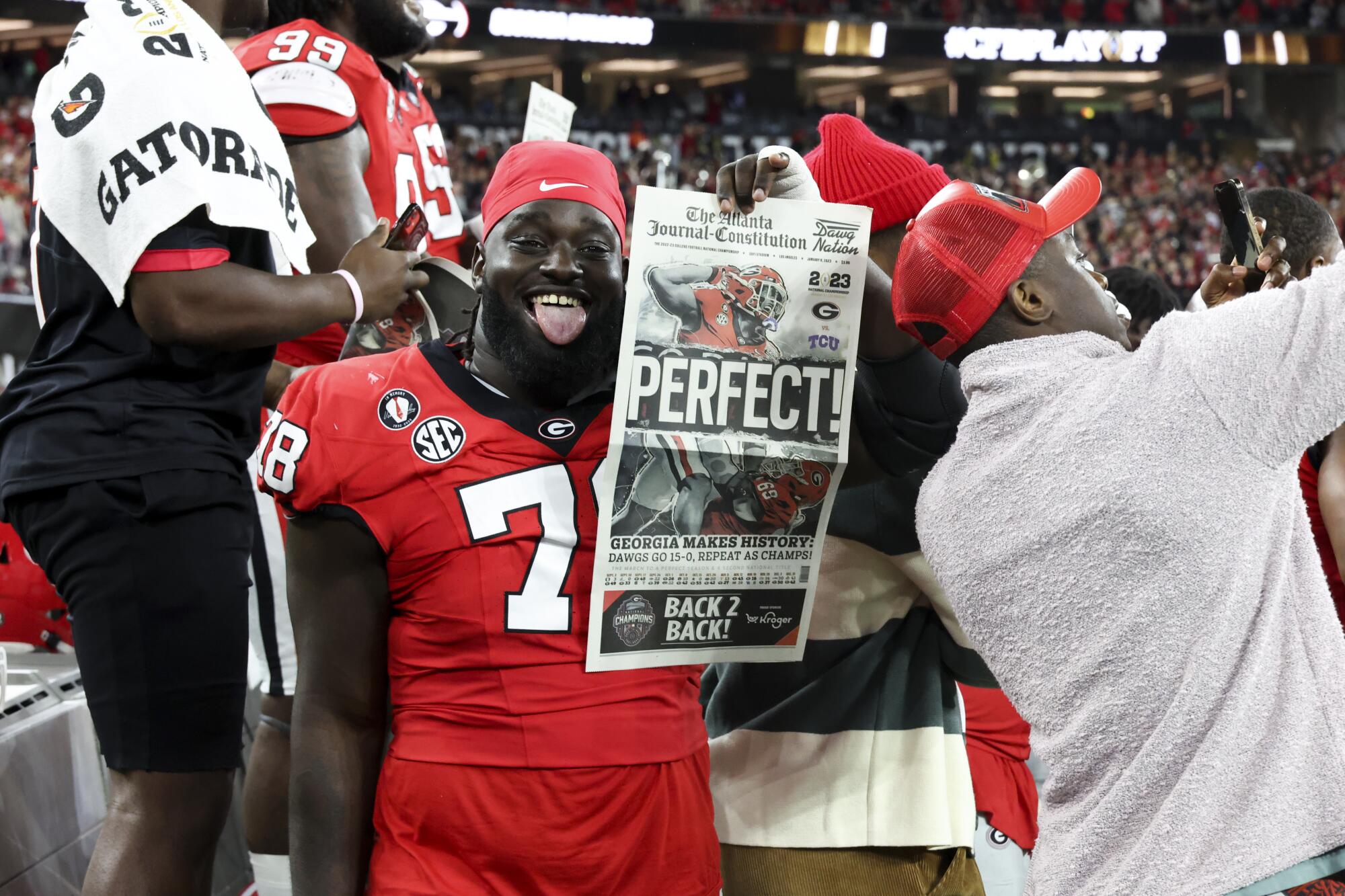
USC coach Lincoln Riley was at SoFi Stadium on Monday night to support his brother, Garrett, the TCU offensive coordinator. He had a front-row seat to see just how astronomically far away the Trojans are from playing at a national championship level (after losing to Tulane in the Cotton Bowl, he probably didn’t need such a blunt reminder).
Riley, of course, knows what it takes to get to the playoff. He led Oklahoma to the CFP semifinals three years in a row but was dismissed each time by a more fit SEC opponent — Georgia, then Alabama, then Louisiana State. It’s no wonder that his detractors accused him of leaving Oklahoma for USC because he wanted nothing to do with the SEC.
Watching Georgia throttle TCU, who could blame him?
But, in this game, you can only avoid the SEC confrontation for so long. The conference has now claimed 13 of the 18 national championships since the last time the Trojans reigned victorious.
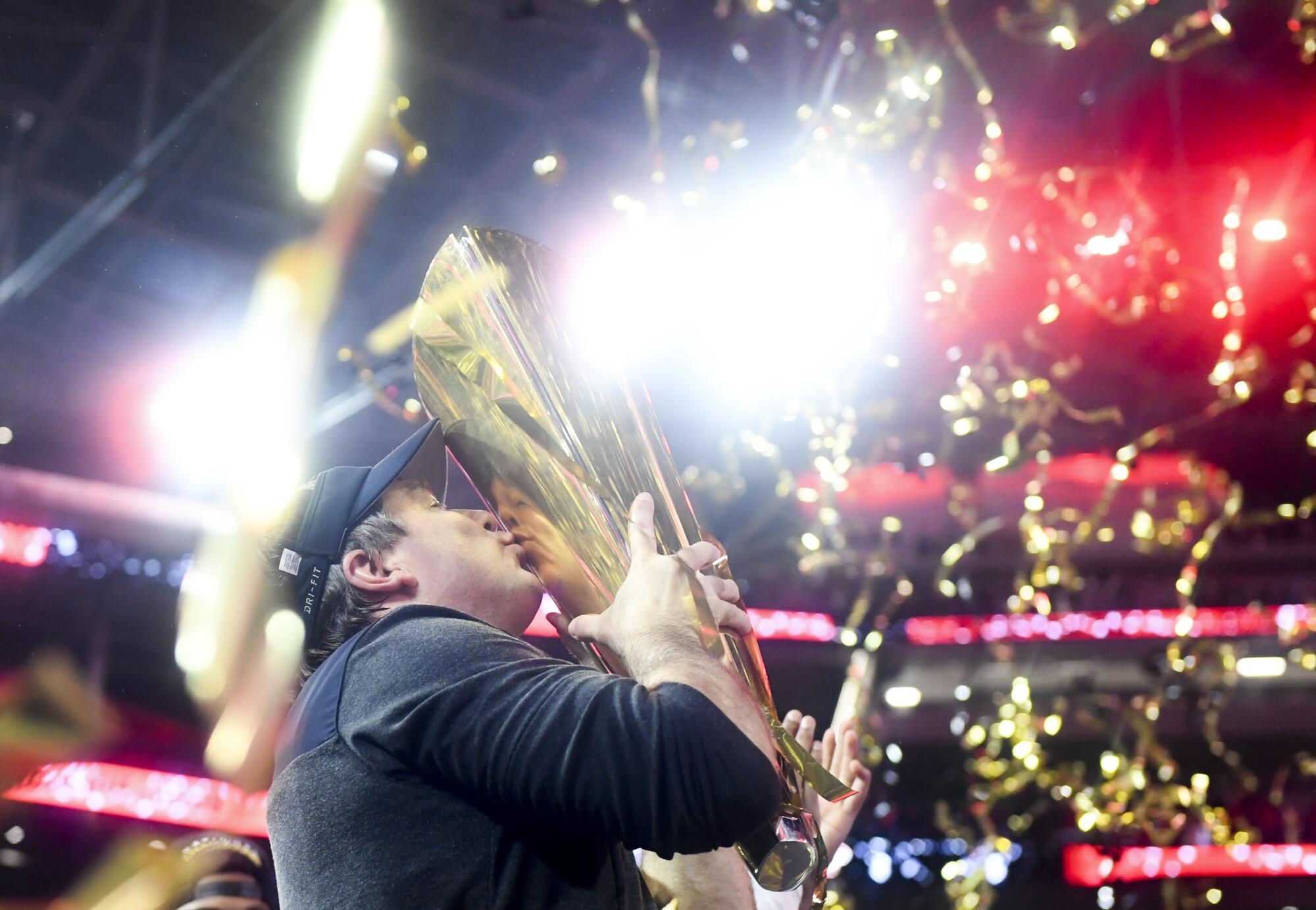
For USC fans, there should be comfort in the memory of Jan. 4, 2005, a magical Miami night. At halftime, the Trojans led Oklahoma 38-10, on the way to a dominant 55-19 victory. USC’s ascension to the rarified air of repeat national champion felt as inevitable as Georgia’s Monday night.
Greatness like this can happen at USC. Not many schools are fortunate enough to know that from experience.
But Kirby Smart’s gritty, snarling Georgia program is going to make USC — and any other potential usurpers — earn every inch of it.
More to Read
Go beyond the scoreboard
Get the latest on L.A.'s teams in the daily Sports Report newsletter.
You may occasionally receive promotional content from the Los Angeles Times.

